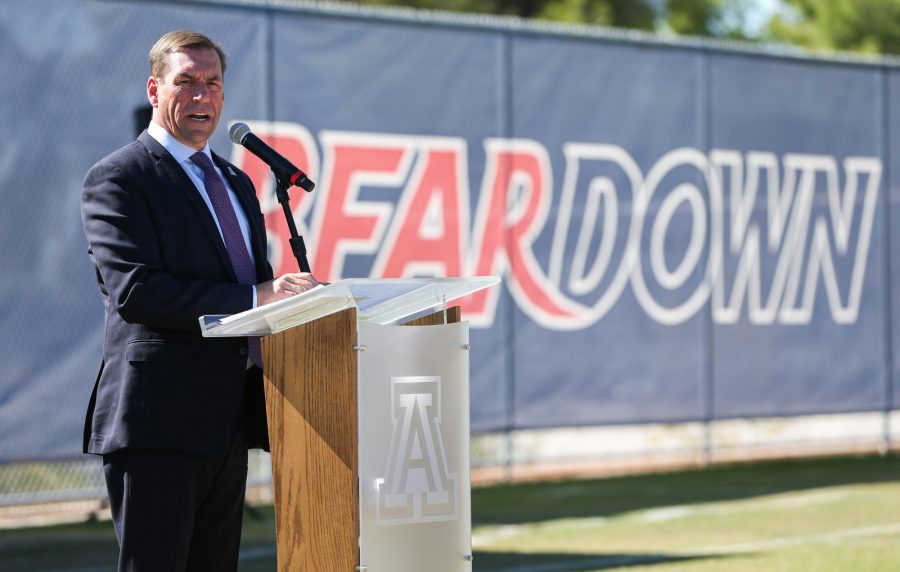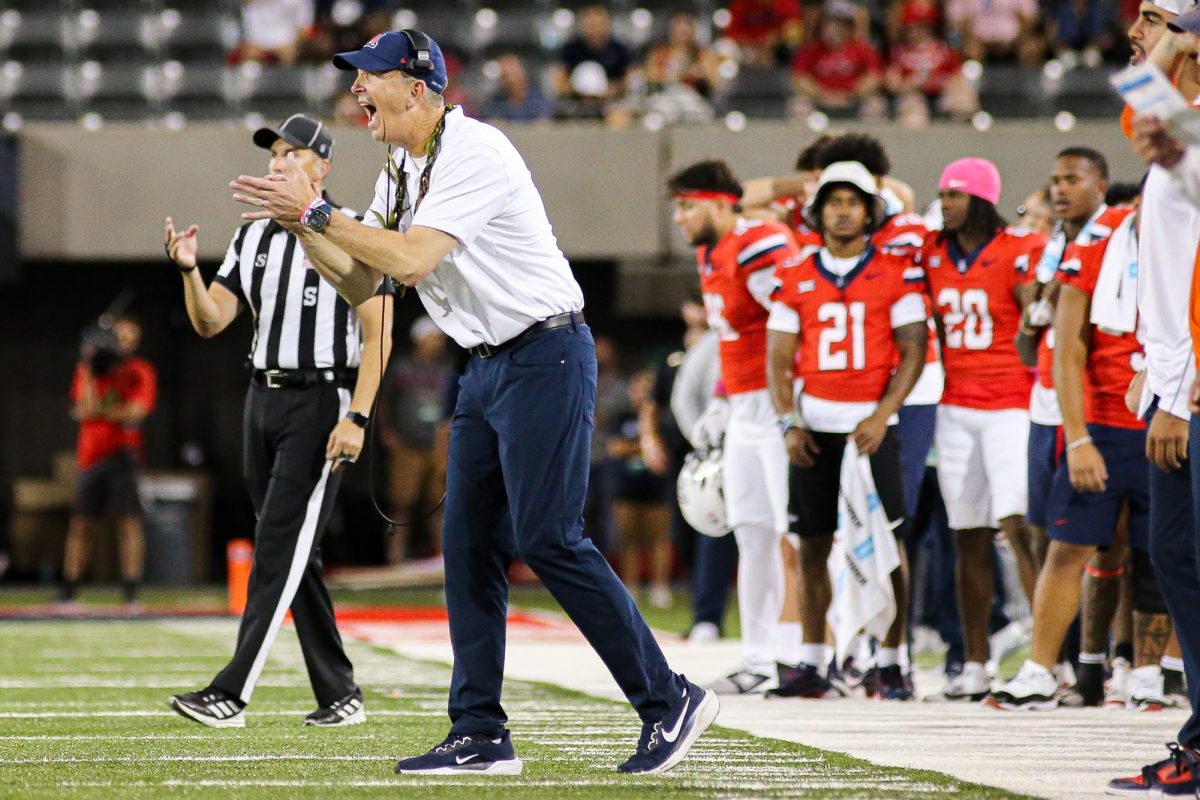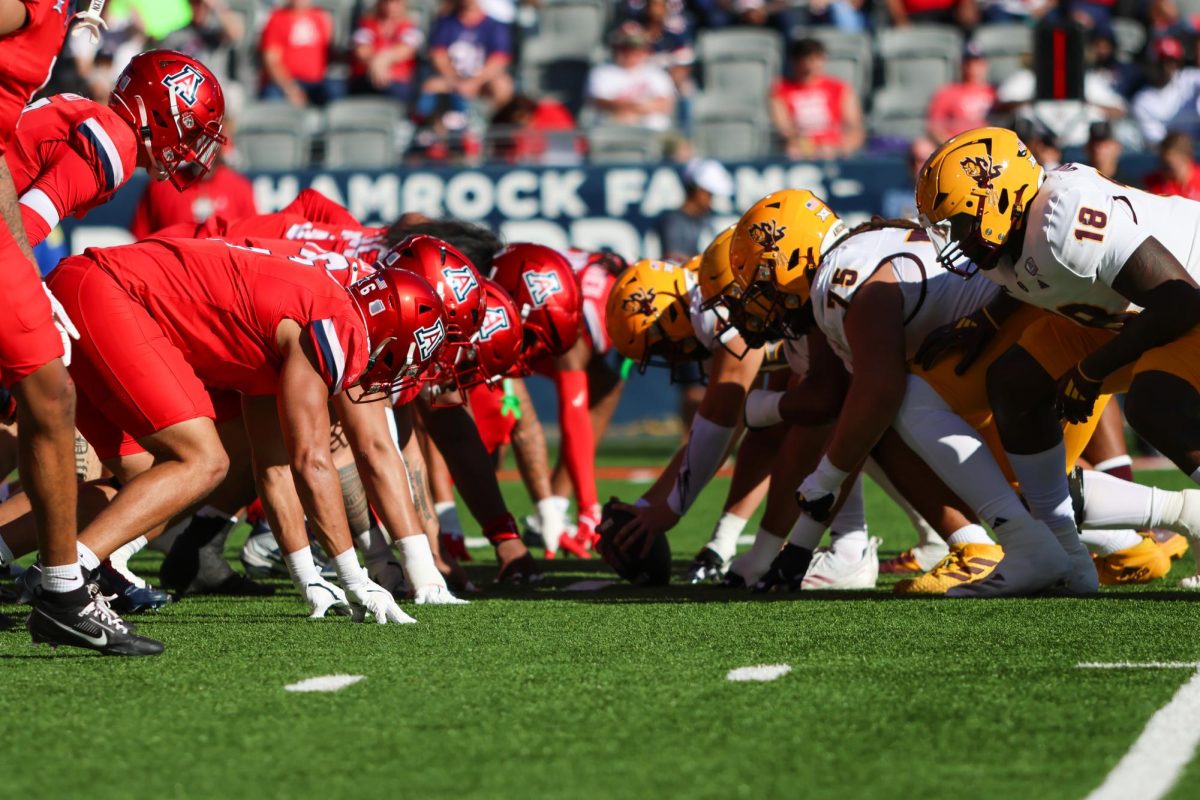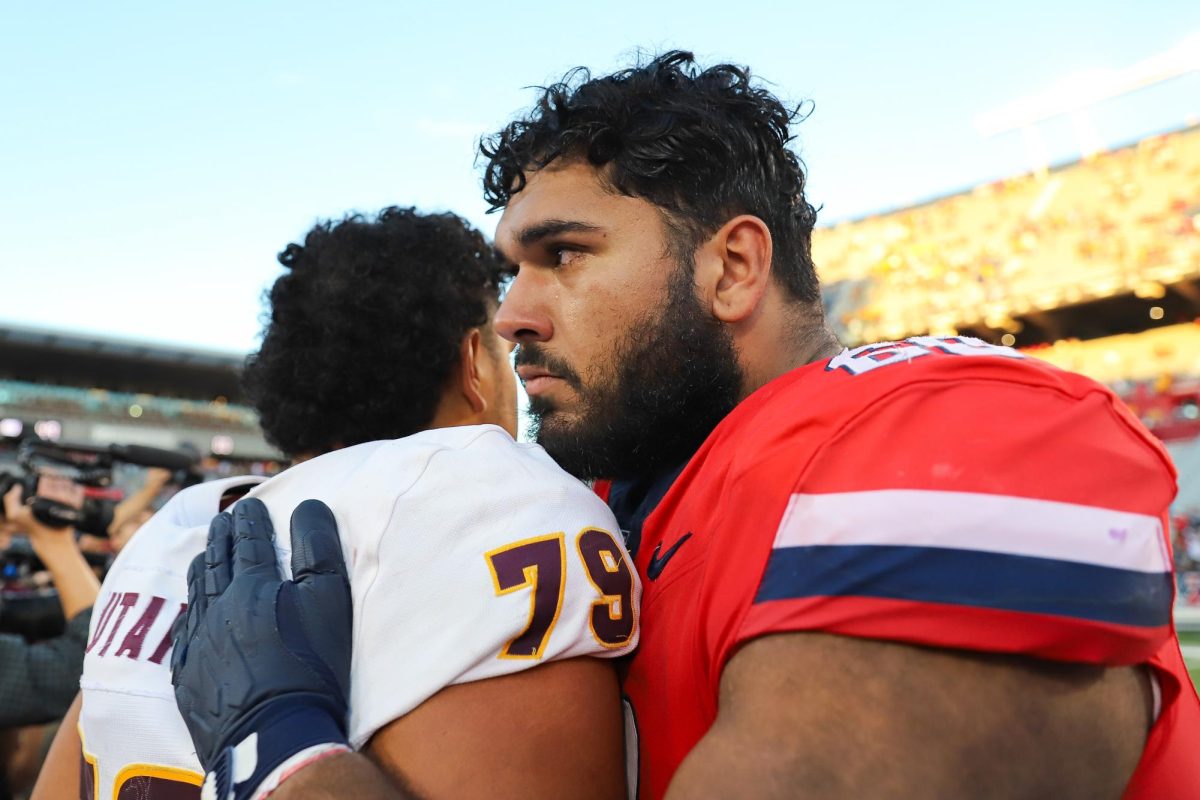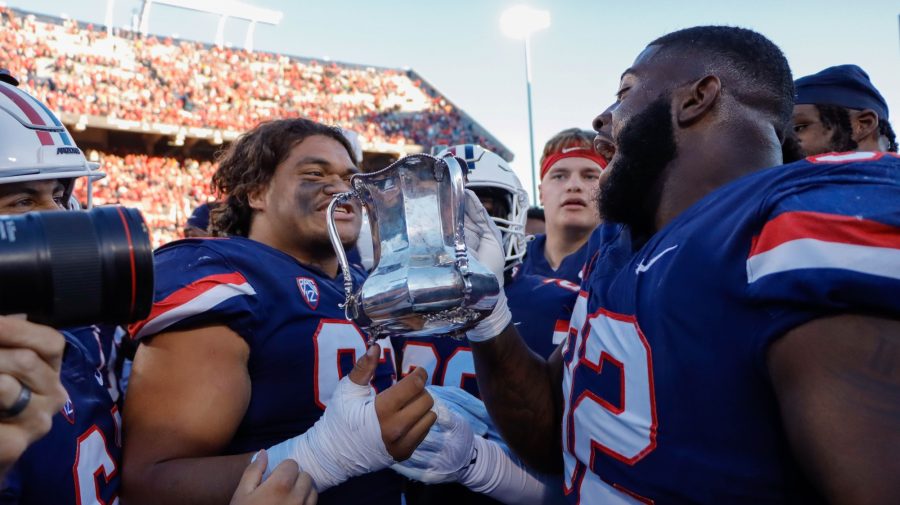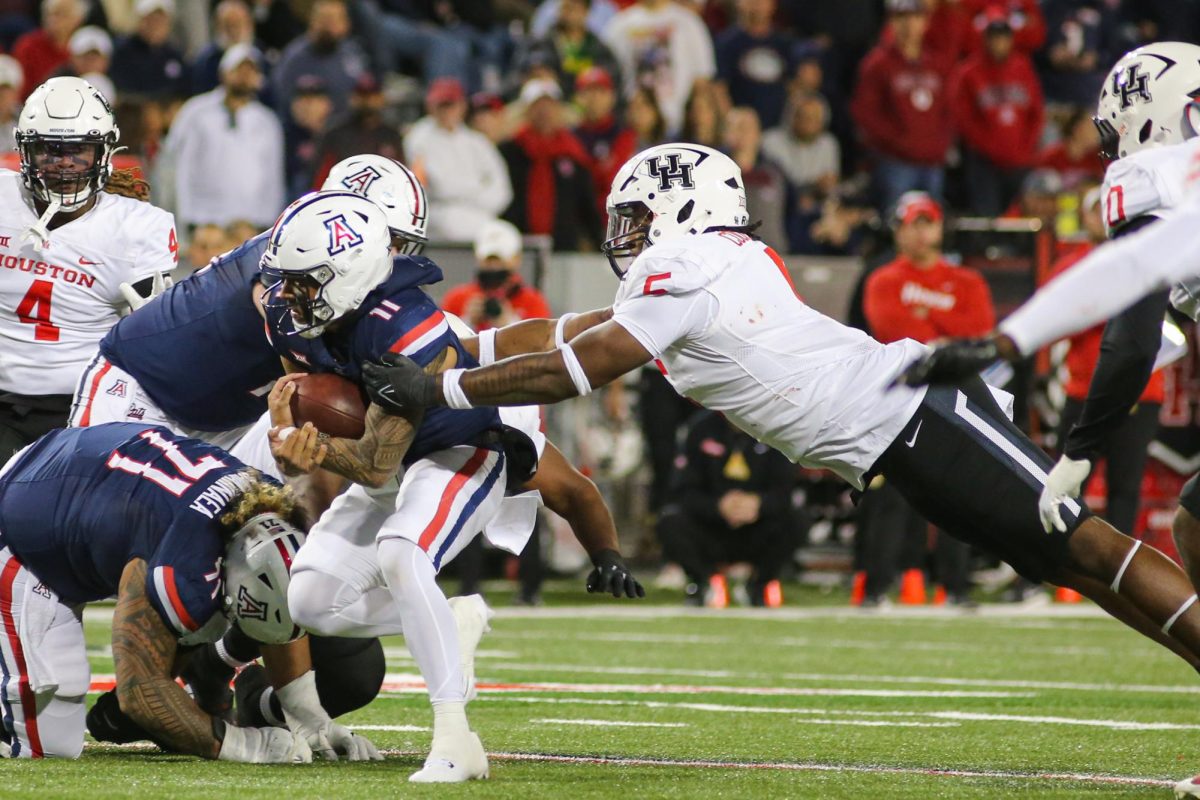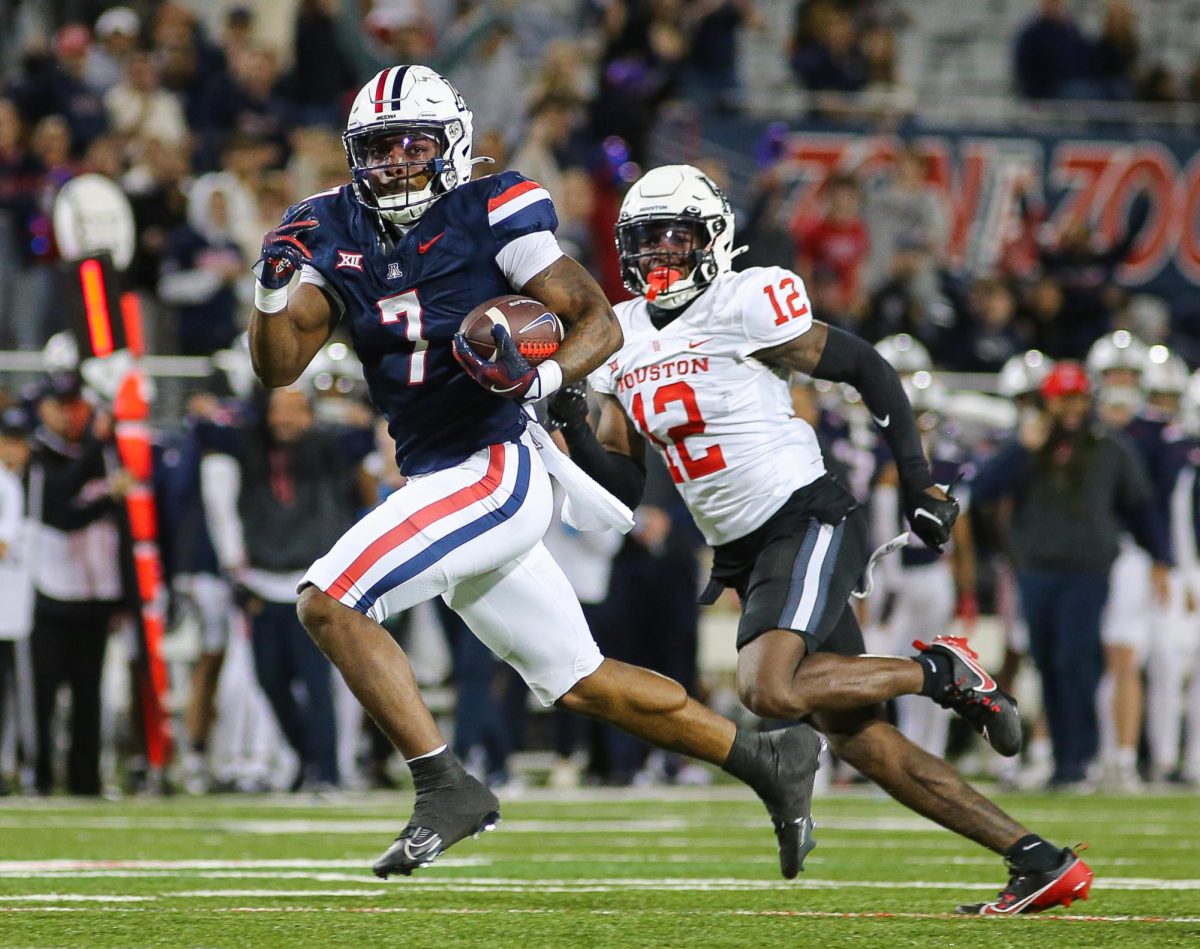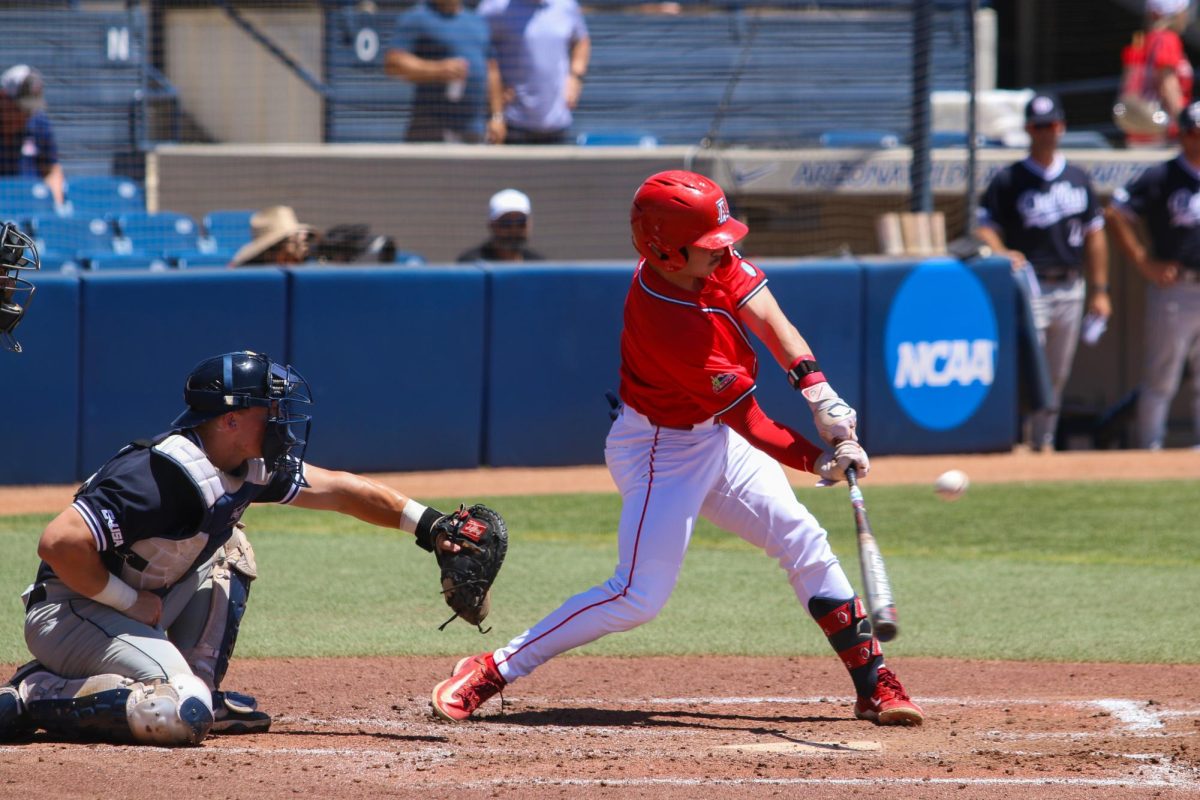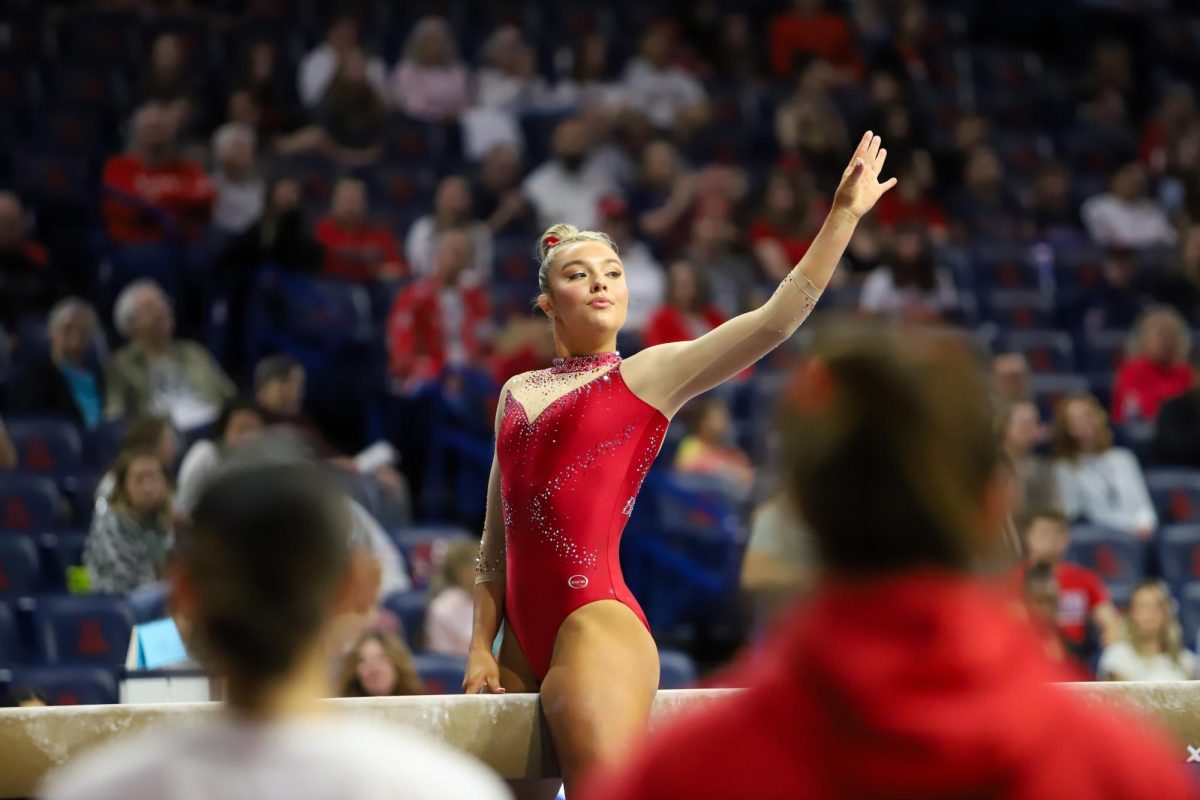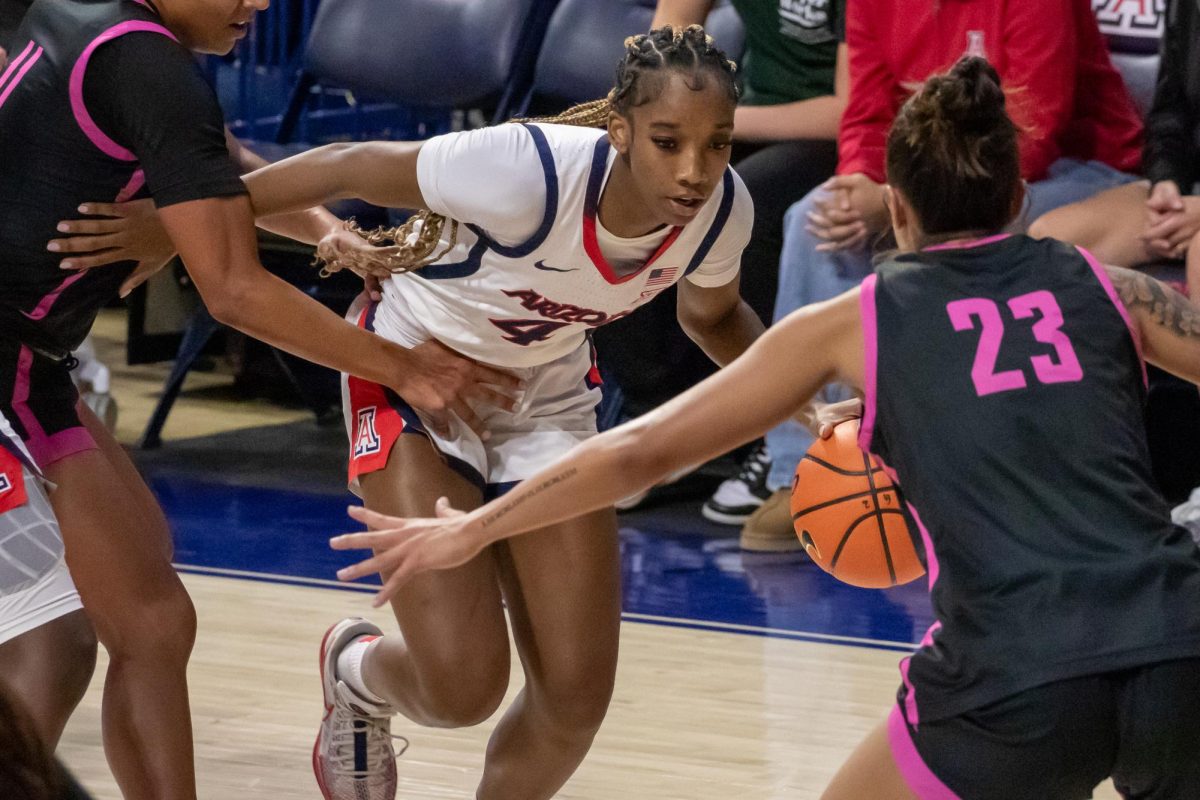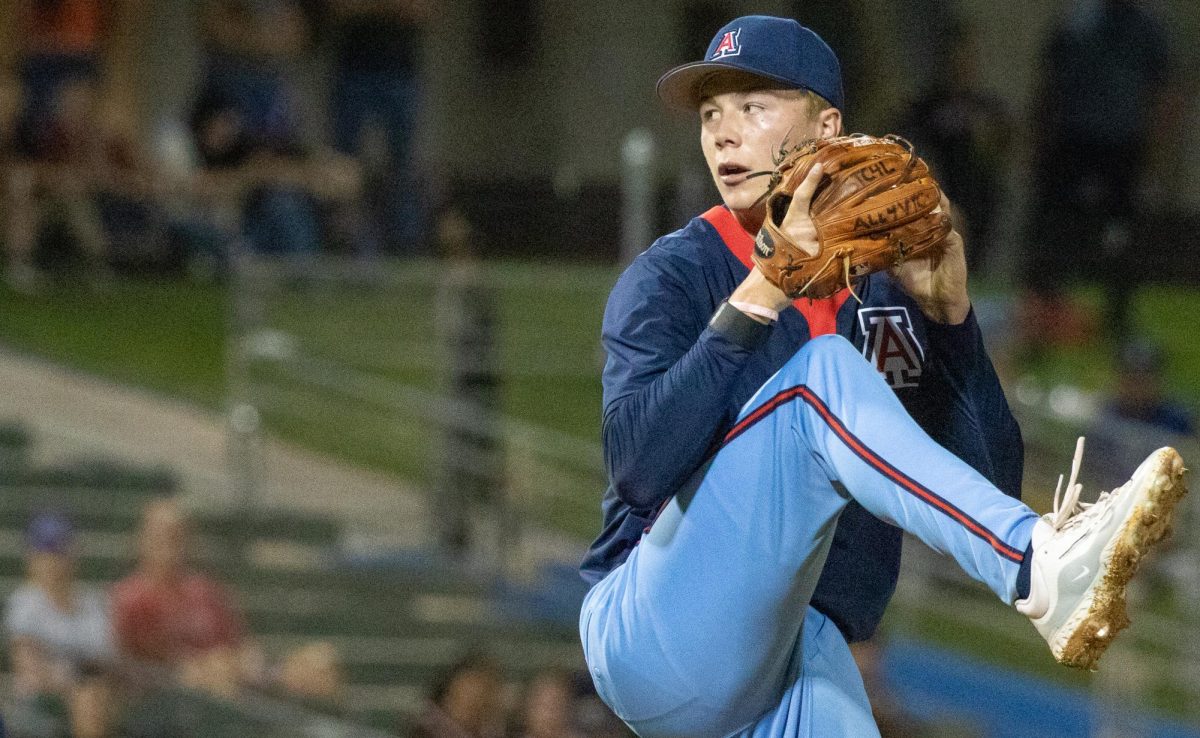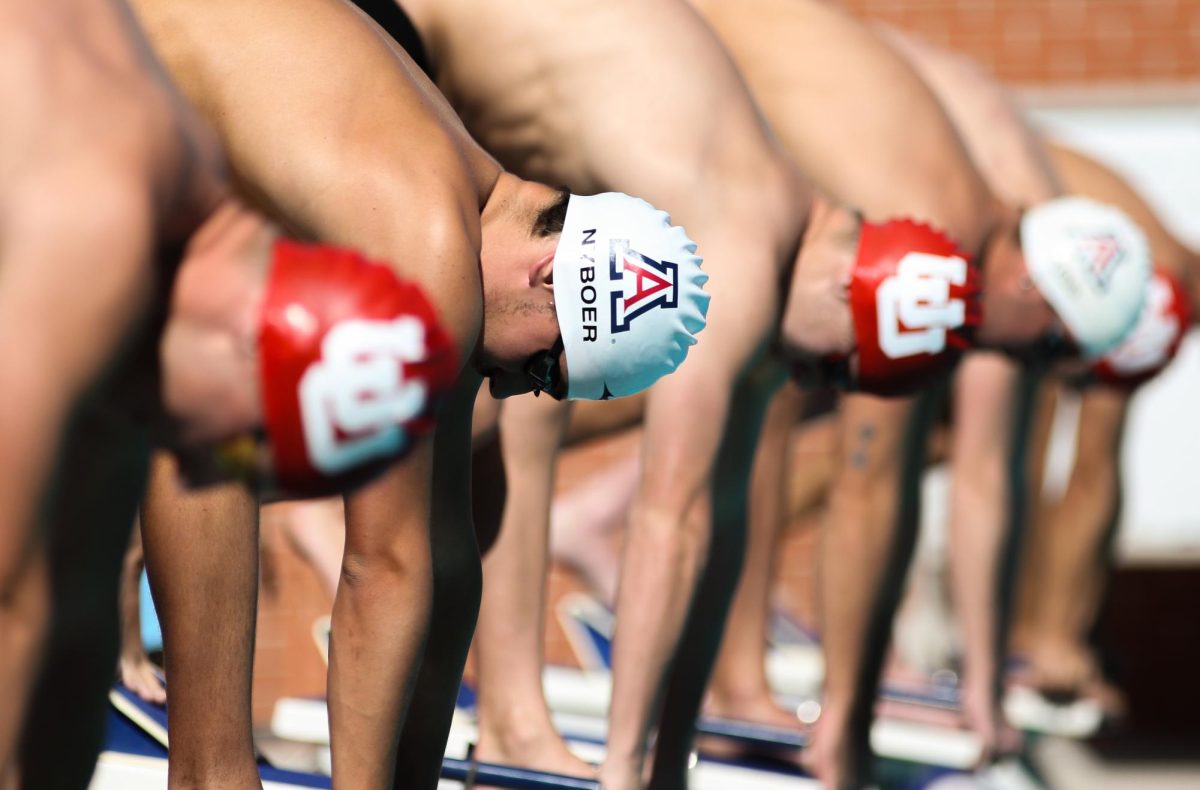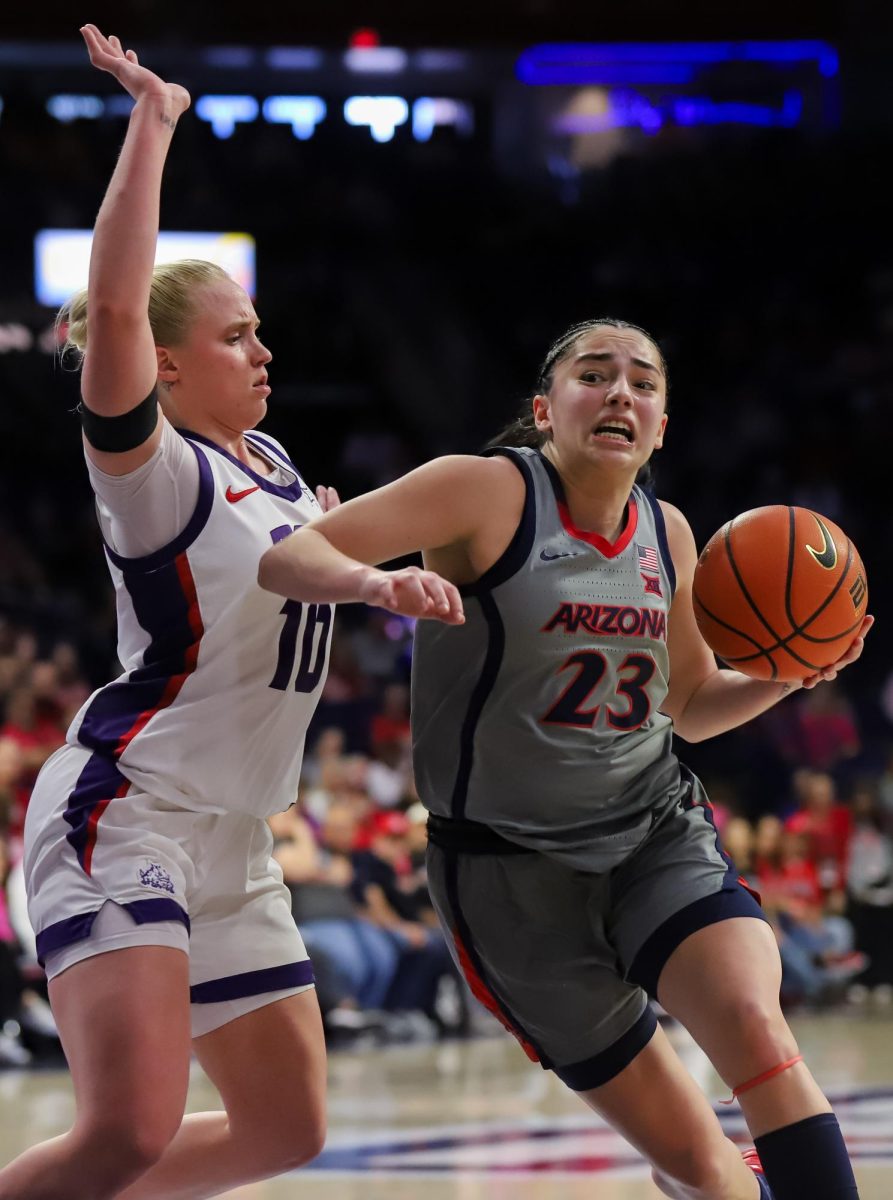Arizona athletic director Dave Heeke announced that the university and the athletic department is fully committed to having a college football season this year. Heeke held a virtual press conference with the media on Thursday where he laid out his plans to have a 2020 football season while prioritizing the health of the fans and student-athletes. Here are a transcript and a few highlights.
Heeke on how the budget cuts have affected the renovation projects of the athletic facilities: “All of our capital projects that we’ve talked about are all on a pause right now. I don’t think it’s any secret that we are really focused, day-to-day, on the current budget position of our program and the university as a whole. Those larger projects, those larger capital projects, we’ve paused and we’ll address those when the time is appropriate going forward.”
Heeke on his timetable and deadline for making a decision on the upcoming football season: “There are so many things that we really don’t know. We are focused on what we can control right now and that’s planning for re-entry of our staff and our student-athletes. Our full intention is to have competition in the fall for football so we’re taking those steps to bring our players back, to be ready for that when that happens, and be able to train and be prepared for a college football season. We are focused on trying to preserve a complete season of football for as many games as possible. That’s critical to the overall economic health of not only the University of Arizona but all of college athletics at the power-five level.”
Heeke on his plans to fill the vacant coaching positions in volleyball, men’s basketball and other sports: “We are on a hiring freeze across the entire university, that includes athletics. However in our key coaching positions, as we get to a point where we know we are going to have student-athletes start to come back, we’ll fill those positions on the coaching line. Every one of our positions, we’ll evaluate in a unique way depending on the circumstances but generally, we are in a hiring freeze across the board for those vacant positions. We have a number of those in athletics, to the tune of I’d say about 20 positions that are vacant at this point that we’ll determine as we go along. We have two coaching positions in volleyball and certainly men’s basketball that are vacant and we’re looking at those, in the near future, to fill.”
Heeke on how the athletics’ task force is connected to the decision-making of the overall campus: “Anything that our work-force group goes forward with will be in concert with the state and local government agencies, the health professionals, our universities’ protocols and processes as well as the Pac-12 and NCAA. It’s not a group that can do whatever it wants, it will be working in concert with all of those. This group is linked directly to the overall university’s re-entry team.”
Heeke’s biggest concerns on the process of re-entry as of this moment: “Well I think it’s the unknowns. It’s hard when you don’t know exactly what the options are or what the outcome potentially is that you can work towards. The numerous plans are difficult when you don’t know how far to carry those plans. We’re trying to control what we can control and focus on a plan to re-enter. Our student-athletes will come back. We will compete. We’ll have to do both of those things in a different manner than we’ve done in the past so we’re beginning to develop those steps internally and those policies that we know we’ll have to go through to provide a safe and healthy environment for our coaches and student-athletes.”
Heeke on his ideas of not having a football season and the financial impacts that would come with it: “I have not heard of a ‘no college football season’ scenario. It’s very important to the overall economic health of college athletics. The level of what kind of season we’ll have is still, again, unknown. Does it shift from the fall to the spring? Are there other options that might happen? As things unveil to us all and force us to shift, we’ll shift. I know with my colleagues around the country, it is critical to all of us that we play college football and that it happens at some level. Without college football, it would be devastating to the overall college-athletic enterprise. The resources that surround college football at a local level when you talk about tickets, donations and media packages. They all have an enormous amount of revenue streams that feeds back into our university and athletic programs that are important to the financial viability of our overall programs.”
Heeke on extending the deadline for renewing football season tickets: “We have already relaxed our season-ticket renewal process and moved it from May 1 to June 1. We’ve also extended options for folks to have a more generous payment plan and extend that all the way through August. We’ve also made it very clear that if the season is modified or changed at all…we will provide an opportunity for fans to be refunded and protected at all levels.”
Heeke on the possibility of having a football season without some of its Pac-12 schools: “We continue, as a conference, to be very aligned that all of our members would play football together and continue to have a Pac-12 season. We’re not moving too far down that road until that kind of domino falls. We have not talked about that type of modified season in that way.”
RELATED: UA President Robbins announces in-person classes fall 2020
Heeke on his plans to bring fans into arenas for sporting events: “It feels like a lot of the conversation is certainly around modified fan environments, not full-capacity environments…people talk about 50% or 25%, it’s hard when we know how important those revenue streams are but it needs to be a safe environment. We can’t go into this half-hazardly. We have to provide an environment that we’re confident in and an environment that our fans are confident in where they are protected and safe.”
Heeke on his plans to help international recruits enter the country safely: “We have a number of international athletes incoming as well as the ones on our current rosters. Many of those on our current rosters have returned to their home countries so it does pose questions on how they will re-enter the United States. At this point, we’ve certainly stayed in contact with our international affairs office on campus. It will be a challenge but we think most of those individuals will be able to come back. We have a very close monitor on all of our student-athletes and where their destinations internationally have been. We’re in contact with them regularly so we know about any movements that they’ve taken within their own countries and beyond.”
Follow Jacob Mennuti on Twitter



